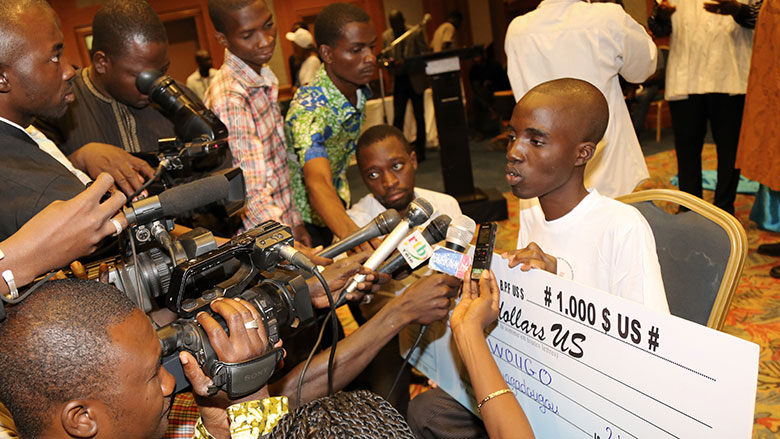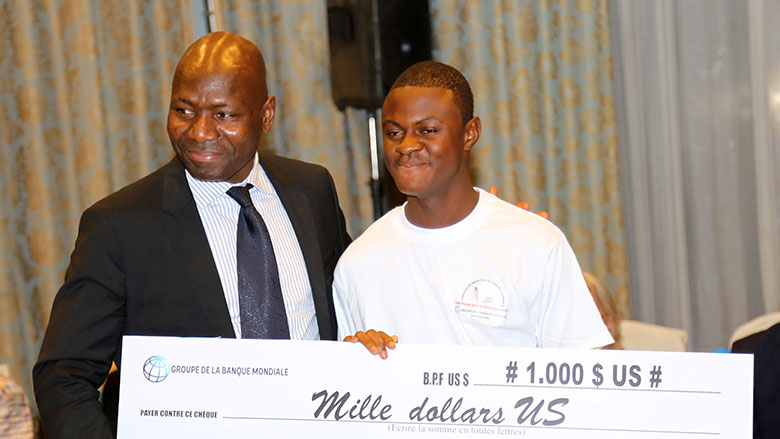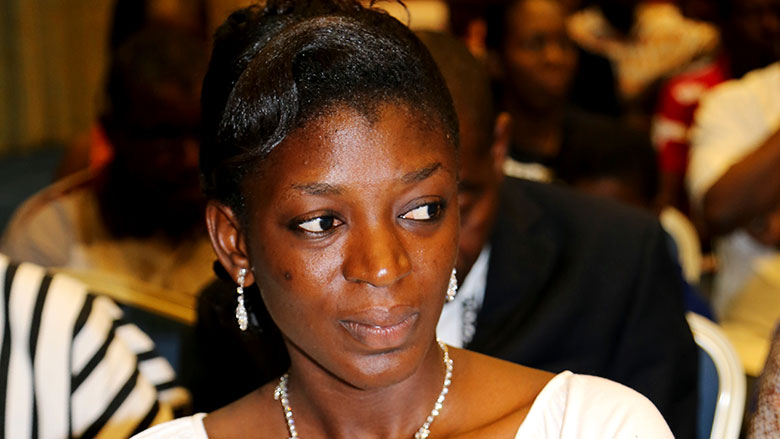OUAGADOUGOU, July 28, 2016—For the second year in a row, the World Bank office in Burkina Faso organized a blog contest entitled “Writing for Development”. The contest, which launched nationwide in May 2016, invited university, high school, and middle school students to express their views on development issues in their country. It was also an opportunity for the World Bank to renew its commitment to the young people of Burkina Faso and listen to their ideas and aspirations.
Among the 500 entries, the jury nominated 40 finalists. Of these finalists, the best three in each category received special prizes, while the remaining finalists received consolation prizes. The overall first prize of $1,000 was awarded to the winner of the university category, and the same amount was also awarded to the winner of the high school and middle school category. The latter, which was not included in the first edition of the contest, was added specifically to enable the World Bank to connect with the under-18 age group. Contest applicants were asked to respond to one of two themes, depending on their category: “youth employment: challenges and solutions” in the case of university students, or “social networks: advantages and disadvantages” for high school and middles school students.
At the awards ceremony held on June 24, 2016, the jury, chaired by Dr. Dramane Konaté, president of the writers’ association (Société des auteurs, des gens de l’écrit et du savoir: SAGES) of Burkina Faso, awarded the first prize in the university category to Wougo Kaboré, a 23-year-old student attending the Burkina Institute for Applied Arts and Crafts (Institut Burkinabe des Arts et Métiers or IBAM). This young Burkinabe dazzled the jury with his analysis, which focused on agriculture and the potential of this sector to create more jobs, specifically through creating small production units managed by youth.
“I also proposed creating training modules in universities on the agricultural sector and on managerial techniques,” Kaboré explained at the ceremony. “It is really important to refocus the education system on the skills required by businesses and on the sectors where there are the most job opportunities.”
In the high school and middle school category, the first prize went to Sié Rachid Boris Coulibaly, a senior at Moukassa High School in Koudougou. In Coulibaly’s view, “social networks have become the youth’s tool of choice. They allow them to discuss political issues in various forums and learn about the latest cultural trends around the world.” He warns, however, that these same social networks present a number of disadvantages. “Young people may become victims of cyber-bullying or cyber-crime,” he added.
In the words of Dr. Dramane Konaté, “the scope and quality of the entries are a reflection of the youth’s impressive analytic capacities (…) their maturity leads to highly relevant suggestions, both for bringing down unemployment and significantly reducing cyber-addiction.”
At a vibrant evening event, the World Bank team highlighted the merits of young people, emphasizing the importance of their participation in the development of their country. In total, prizes were awarded to six individuals in two categories, and the winner of each category received the prize money of $1,000 from the hands of Cheick Fantamady Kanté, World Bank Country Manager in Burkina Faso.
“I would like to salute the courage of the applicants who candidly shared their ideas and their visions on issues such as employment and social networks. We were delighted by this level of commitment on the part of young people to discuss matters on which their voices are not often heard,” Kanté concluded.



